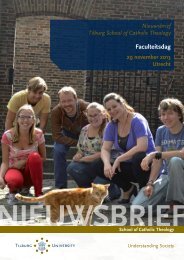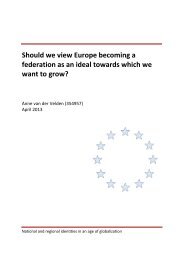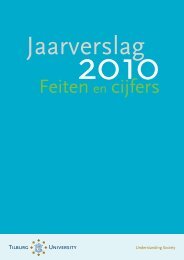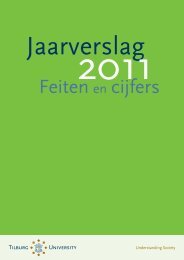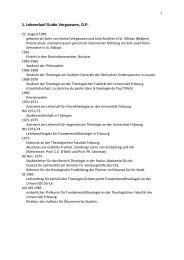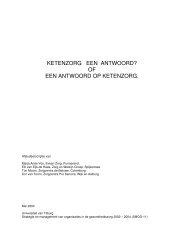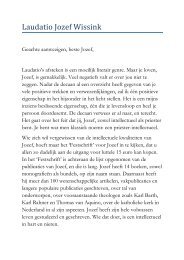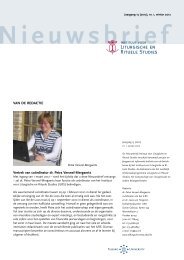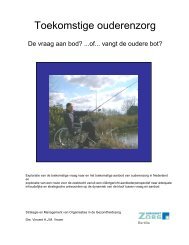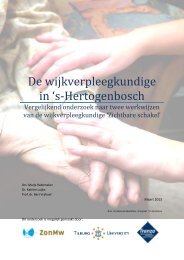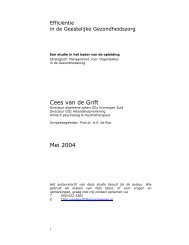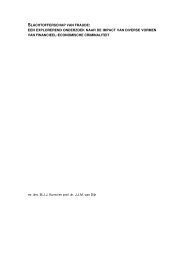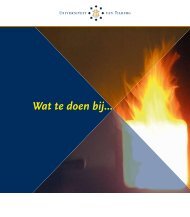Here - Tilburg University
Here - Tilburg University
Here - Tilburg University
You also want an ePaper? Increase the reach of your titles
YUMPU automatically turns print PDFs into web optimized ePapers that Google loves.
greatly inefficient. Only very few events are surrounded by a very large amount<br />
of non events. These facts call for a method, which takes this rareness of the<br />
dependent variables into account. As a consequence, a logistic regression for<br />
rare events data has to be conducted to analyze the reasons for starting and<br />
expanding a family. King & Zeng (2001a; 2001b) developed a method that<br />
combines these two issues, enabling both types of corrections to work<br />
simultaneously.<br />
For the first time in the field of Swiss demography, a comparison of a<br />
conventional logistic regression and a logistic regression for rare events data is<br />
conducted. This helps to statistically explore and research the different<br />
structures and factors that influence fertility behavior. The results indicate the<br />
importance of using a logistic regression specifically designed for rare events<br />
data. This study examines the aforementioned comparison on the basis of the<br />
Swiss Household Panel (SHP) by way of statistical methods for rare events data<br />
and conventional logistic regression. In so doing, it reveals important<br />
background factors and motives for fertility behavior, which do not<br />
underestimate the event of having a baby. In terms of empirical considerations,<br />
a new dimension is developed.




